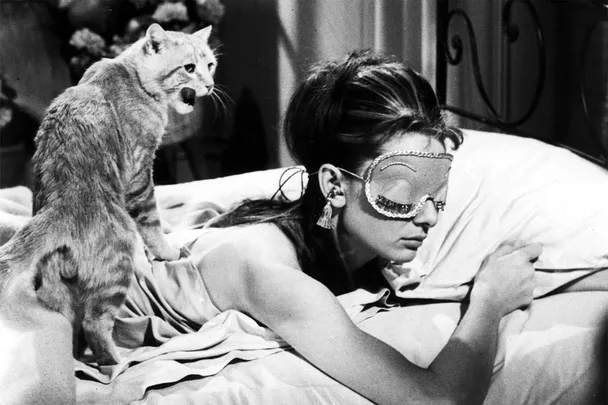We’ve always been told to get eight hours of sleep a night, but a new study says we may need more. And the exact amount is dependent on our age.
WATCH BELOW: Natalie Portman’s Tribute To All Snubbed Female Directors At Oscars
The National Sleep Foundation conducted a two-year sleep study to determine sufficient sleep durations for each age group.
Unsurprisingly, babies need the most; the study suggests newborns (zero to three months) require 14 to 17 hours, and infants (four to 11 months) need 12 to 15 hours.
Ironically, retired folk (65 years and older) who have more time on their hands actually need the least amount of sleep – between seven and eight hours.
According to the study, this is how much sleep you should get depending on your age:
- Newborns (zero to three months): 14 to 17 hours
- Infants (four to 11 months): 12 to 15 hours
- Toddlers (one to two years): 11 to 14 hours
- Preschoolers (three to five years): 10 to 13 hours
- School-aged children (six to 13 years): nine to 11 hours
- Teenagers (14 to 17 years): eight to 10 hours
- Young adults (18 to 25 years): seven to nine hours
- Adults (26 to 64 years): seven to nine hours
- Older adults (65 years and up): seven to eight hours
The study stressed the importance of sticking to the recommended minimum and maximum hours. Too little sleep and you are at risk of heart disease, too much and symptoms like depression are possible. Weekend sleep-ins are out, too, as a consistent sleep pattern is important.
In 2019, Ian Hickie, the co-director of health and policy at the University of Sydney’s Brain and Mind Centre, discussed the ramifications of a lack of sleep with The Sydney Morning Herald.
“If you take an average 20-year-old, restrict his sleep to five hours a night, five nights in a row, and measure his blood glucose on night one and at again on night five, he will have gone from being completely healthy to being in a pre-diabetic state. If you do the same thing with testosterone, it’s as though he’s aged at least a decade.”
Not getting enough sleep is comparable to being intoxicated, says Hickie.
“Your blood alcohol concentration equivalent is .05 after those five nights, which means your cognition and reaction times are no longer optimal. Actually, if you miss an entire night’s sleep, for just one night, your blood alcohol equivalent is 0.1 [the limit in Australia is 0.05], which means you shouldn’t be doing things like driving a car at all. Added to which, your [emotion processing] amygdala is up to 60 per cent more reactive after just one night’s sleep deprivation. You just can’t think or make sensible decisions in that state.”
So, while eight hours may not be the gold standard for everyone, the importance of a good night’s sleep is universal.
We’ve always been told to get eight hours of sleep a night, but a new study says we may need more. And the exact amount is dependent on our age.
WATCH BELOW: Natalie Portman’s Tribute To All Snubbed Female Directors At Oscars
We’ve always been told to get eight hours of sleep a night, but a new study says we may need more. And the exact amount is dependent on our age.
WATCH BELOW: Natalie Portman’s Tribute To All Snubbed Female Directors At Oscars










